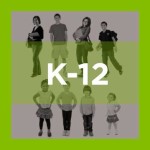If you’re looking for more up-to-date information, please see our most recent post on this topic, "The Other Branch: Outcomes of Gary B. v Snyder" published July 2020. This post includes the outcomes of the court case.
Literacy is fundamental to a host of things; without the ability to read and write, it’s arguably difficult to do much else. But is literacy — or more specifically, access to an education and instruction that develops literacy — a fundamental right? That’s the question at the heart of Gary B. v. Snyder.
The federal case argues, on behalf of students in the Detroit Public Schools Community District (DPSCD), that certain conditions in the school district — such as a “lack of books, classrooms without teachers, insufficient desks, buildings plagued by vermin, unsafe facilities and extreme temperatures” — have denied students the opportunity to attain literacy.
Moreover, the complaint argues that DPSCD does not allocate enough funding to purchase a sufficient number of current textbooks, which is a challenge faced by many other urban school districts across the country. Wayne RESA, a regional educational service agency in Michigan, performed an instructional materials audit on curricula in DPSCD in 2017. Reports on the audit found teachers were utilizing instructional materials from 2007, and “the district’s curriculum [was] missing research-based methods to increase vocabulary and knowledge needed for students to be proficient readers.” Students were using outdated textbooks that were not aligned to state standards on which state tests are based, according to reports.
To resolve this case, students asked the court to “ensure [students in the school district] have the opportunity to attain literacy” through “implementation of evidence-based programs for literacy instruction” and the “establishment of a system of statewide accountability” that can monitor and intervene in conditions that create barriers to literacy.
Where Do They Go From Here?
In the end, the judge in the case agreed that literacy is vitally important to public life and that the conditions in Detroit public schools are “devastating.” However, he ruled that there is no fundamental right of access to an education that develops literacy and dismissed the case. In the opinion, the judge wrote: “When a child who could be taught to read goes untaught, the child suffers a lasting injury — and so does society. But the court is faced with a discrete question: does the Due Process Clause demand that a State affirmatively provide each child with a defined, minimum level of education by which the child can attain literacy? Based on the foregoing analysis, the answer to the question is no.” The plaintiffs plan to appeal this ruling.
The decision of this case is in line with many other federal cases over the years that have tackled the question of whether education is a fundamental right under the U.S. Constitution. To hear more about this case and others, be sure to attend the concurrent session, with professor and attorney Michael Rebell, on Thursday at the National Forum on Education Policy.







